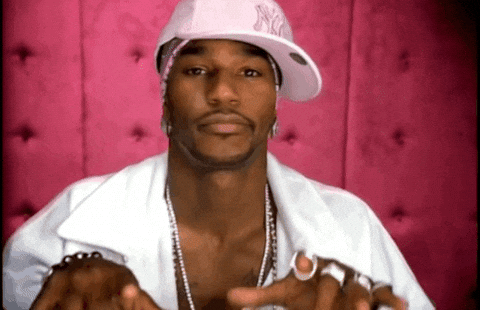Image: More Than Just a Pretty Face
Let’s get one thing straight: your image matters. Not in the “look hot on Instagram” kind of way (although that doesn’t hurt), but in the “who the hell are you and why should anyone care?” kind of way. Musicians who build lasting brands have a visual and emotional identity that’s unmistakably them. Think Tyler, The Creator in pastel suits and wigs, or Billie Eilish looking like she just rolled out of a haunted skate park. Your image is your billboard to the world. It's not just about what you wear—it's about the world you build around your music.
And no, this isn’t about “selling out.” It’s about clarity. People need to instantly recognize your vibe. If your songs are sad and introspective but your visuals look like a Vegas rave, there’s a disconnect. People are already overwhelmed with content—they’re not going to decode your soul. Make it obvious. Be intentional with colors, fonts, video direction, album art, and even how you talk in interviews. Create a world people want to step into.
Audience: You’re Not for Everyone, and That’s the Point
Trying to please everyone is the fastest way to become a musical beige wall. If you make music that sounds like “whatever’s hot,” guess what? You’re forgettable. The best musicians know exactly who they’re talking to. Whether it’s stoned college kids, angry teens, spiritual introverts, or club-hopping extroverts, your music should feel like it was madefor someone.
And it doesn’t stop at the sound. It extends to your values, your attitude, how you speak on social media, and what you stand for. Your fans need to see a little piece of themselves in you—or the version of themselves they wish they were. Tyler fans don’t just like the music—they like the freedom. They like that he gives zero f***s in a highly curated, filtered world. That kind of loyalty doesn’t come from chasing streams—it comes from being crystal clear about who you’re here for.
Product: Your Music Is the Entry Point, Not the End Game
This is where most musicians get it backwards. They think the song is the product. It’s not. The song is the invitation. The brand is what people stick around for. Sure, your music needs to slap, but if that’s all you’ve got, you’re a one-stream stand. What keeps people coming back is how everything feels. The vibe, the visuals, the story, the merch, the experience.
Look at how someone like Frank Ocean operates. He drops music like solar eclipses—rare, beautiful, and followed by months of people speculating about what it means. Meanwhile, his real-world products—his merch, magazine, and Blonded Radio—extend the experience beyond audio. Smart musicians build ecosystems. Your brand should give people multiple ways to engage: music, content, clothing, maybe even a damn cookbook if that’s your thing. The point is, your brand should live in more places than just Spotify.
Sponsorships/Partnerships: Sell Out? Nah—Level Up
The term “sell out” is outdated. You know what’s more embarrassing than taking a brand deal? Being broke and bitter while the artist you called a sellout is designing sneakers with Nike and headlining festivals. Collaborations, when done right, amplify your voice. They don’t mute it. The key is alignment—does the brand share your values, your style, your vibe?
Take Travis Scott’s deals with McDonald’s and Fortnite. Were they weird? Sure. But they were also massive, because they fit his brand of surreal, cultural mash-ups. Meanwhile, artists like Doja Cat or SZA partner with fashion brands that reflect their image, not just their bank account. Don’t chase sponsorships—build something so distinct that brands chase you. Just make sure you’re not pushing energy drinks when your audience is into green juice and crystals.
Growth: Virality Is a Fling, Branding Is a Relationship
Going viral is easy. Staying relevant? That’s where the real muscle lives. Branding isn’t about the spike—it’s about the stickiness. Great musicians evolve their sound, but keep their essence. They don’t just post on social media, they build culture there. They don’t just drop music, they tell stories people want to follow for years.
Growth comes from doing the unsexy work: refining your vision, connecting with fans, paying attention to what’s working (and what isn’t). Use data like Spotify Wrapped or TikTok analytics not to obsess over numbers but to understand behavior. Where do your fans live? What do they respond to? What gets them to share? And don’t forget to grow sideways—collaborate, feature on stuff outside your genre, show up in new spaces. The more touchpoints, the stronger the brand.
Takeaway / Conclusion: Be the Damn Brand
At the end of the day, if you want to be more than just a fleeting soundbite in someone’s Discover Weekly, you’ve got to think like a brand. That means clarity over chaos. Identity over imitation. And consistency over convenience. You don’t need millions of followers, you need the right thousand. You don’t need a massive marketing budget, you need a point of view. And most of all, you need the guts to say something with your music—and everything attached to it.
Musicians who win the long game don’t just drop songs—they create worlds. They’re not just artists. They’re architects of emotion, culture, and connection. So if you’re serious about building your brand, stop blending in. Start standing the hell out.
Resources




